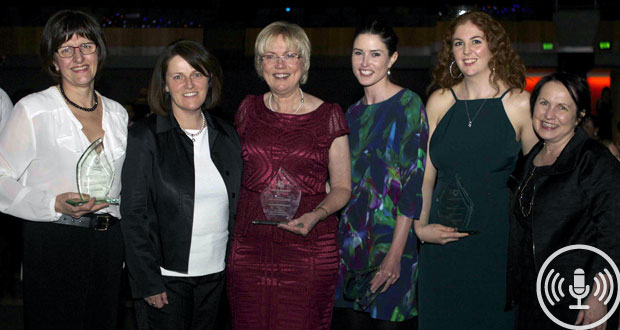A project that connects Australian nurses and doctors with Indian counterparts and a palliative care service team overcoming geographical challenges were among the winners at last night’s inaugural Palliative Care Australia National Awards.
Project Hamrahi won the Innovation in Palliative Care Award. The project is run by Australasian Palliative Link International and led by Dr Odette Spruyt and Pallium India.
It brings together Australian palliative care doctors and nurses and their Indian peers, who are setting up services in India. Spruyt said the team felt that linking new palliative care services and providers in India to experienced doctor-nurse teams might be one way to help support and raise awareness of palliative care and reduce isolation of new service providers.
Liz Callaghan, chief executive of Palliative Care Australia, the body that hands out the awards, said the project showed how far Australia had come in contributing to palliative care on the world stage.
“Palliative care is a relatively new sector in Australia, but we are making a difference to other countries that are only now developing their skills in the sector," Callaghan said. “Project Hamrahi is educating Indian health professionals about the value of medications like morphine and building understanding across the health system about the importance of palliative care.
In one instance, the project mentors visited a site where injectable morphine was not available and discovered it was the lack of a protocol for drug distribution that was standing in the way of pain relief for a number of patients. Shortly after a series of urgent meetings and education sessions, the mentors were supervising the hospital’s first use of parenteral morphine.
The awards night also shined a spotlight on The Sunshine Coast Hospital and Health Service’s specialist palliative care service team. The team was recognised for its use of technology, collaboration and leadership and regular meetings to ensure patients and carers are reached across a broad geographic area.
Dr Louise Welch, Sunshine Coast Hospital and Health Service clinical director, specialist palliative care service, said: "One of the most important aspects of our teamwork is being able to work across all of the disciplines … So it relies on everybody communicating very, very well and appropriately with each other and having a good team focus on what's most important for us, which is … patient care and high-quality care."
Callaghan said the team has a commitment to education and to using technology, along with a focus on self-care that means all the parts of the system work well together.
“Working in a multidisciplinary team, the group focuses on meeting the needs of the client base, undertaking telephone meetings, videoconferencing, face-to-face meetings and appearances at events outside of work hours to meet any challenges in providing good quality care," she explained.
Callaghan also pointed out the team’s use of telehealth to allow palliative care specialists to provide ‘virtual rounds’ in outlying hospitals and so that patients too sick to travel can be treated at home.
“A clinical nurse visits the patient, links with the doctor via an iPad and performs any physical examinations required by the specialist,” she explained. “Added to this, the nurse is also then available to answer any questions the family, carers or patients may have.”
She said the service has taken the challenges of geography and patients’ needs and turned them into opportunities to build an efficient and collaborative team.
Also recognised at the awards were Zoe Mitchell, a senior social worker at Fiona Stanley Hospital in Perth, who took out the emerging leader award for her “untiring advocacy for her patients and commitment to palliative care” and the winner of the emerging researcher award, Anna Collins, a research fellow at the Centre for Palliative Care and PhD student from Victoria who is among a team that developed the I-COPE project. I-COPE provides support and early palliative care intervention to patients with high-grade glioma.
Do you have an idea for a story?Email [email protected]
 Aged Care Insite Australia's number one aged care news source
Aged Care Insite Australia's number one aged care news source

